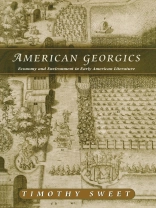In classical terms the georgic celebrates the working landscape, cultivated to become fruitful and prosperous, in contrast to the idealized or fanciful landscapes of the pastoral. Arguing that economic considerations must become central to any understanding of the human community’s engagement with the natural environment, Timothy Sweet identifies a distinct literary mode he calls the American georgic.
Offering a fresh approach to ecocritical and environmentally-oriented literary studies, Sweet traces the history of the American georgic from its origins in late sixteenth-century English literature promoting the colonization of the Americas through the mid-nineteenth century, ending with George Perkins Marsh’s Man and Nature (1864), the foundational text in the conservationist movement.
İçerik tablosu
Introduction
1. Economy and Environment in Sixteenth-Century Promotional Literature
2. ‘God Sells Us All Things for Our Labour’: John Smith’s Generall Historie
3. ‘Wonder-Working Providence’ of the Market
4. ‘Admirable Oeconomy’: Robert Beverley’s Calculus of Compensation
5. Ideologies of Farming: Crevecoeur, Jefferson, Rush, and Brown
6. Cherokee ‘Improvements’ and the Removal Debate
7. ‘Co-Workers with Nature’: Cooper, Thoreau, and Marsh
Notes
Woks Cited
Index
Acknowledgments
Yazar hakkında
Timothy Sweet is Professor of English at West Virginia University. He is the author also of Traces of War: Poetry, Photography, and the Crisis of the Union.












